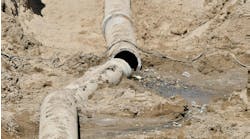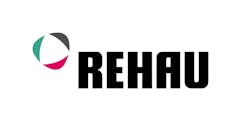ANN ARBOR, MICH. – All major plumbing codes are now requiring that plastic piping products comply with NSF/ANSI Standard 14: Plastics Piping System Components and Related Materials including the Uniform Plumbing Code (UPC). The International Plumbing Code, International Residential Code and National Standard Plumbing Code have required compliance with NSF/ANSI Standard 14 for many years, and now the Uniform Plumbing Code (UPC) also requires NSF/ANSI 14 compliance for plastic pipe and fittings, raising the bar on quality for plastic piping products nationwide.
NSF International is an independent global organization that writes public health standards and protocols, and tests and certifies products for the water, food and consumer goods industries.
The NSF Plastics Piping standard (NSF/ANSI Standard 14) has been in place for more than 45 years and is highly recognized by code and regulatory officials, manufacturers and plumbers to verify the performance and safety of plastic piping system components and related materials. The standard contains physical, performance and quality requirements and also requires ongoing monitoring for plastic piping system components and related materials. It addresses any material used in a plastic piping system, including PVC, CPVC, PE, PEX, ABS, NP, PP, as well as brass, copper, composites, and other materials. Additionally, the standard includes criteria for PVC ingredients.
NSF/ANSI 14 also includes requirements for dezincification (corrosion of brass) and stress corrosion cracking (cracking due to mechanical stress and exposure to a corrosive environment) of brass materials used in plastic piping systems. The standard also requires that products intended for use in drinking water applications comply with NSF/ANSI Standard 61: Drinking Water System Components – Health Effects, which includes requirements for all devices, components and materials that come in contact with drinking water.
"NSF/ANSI Standard 14: Plastics Piping System Components and Related Materials has been a key component in terms of the success of the plastics industry. Meeting higher standards has provided a tremendous boost with market and regulatory acceptance," said Dick Church, Executive Director of the Plastic Pipe and Fitting Association.
NSF Standard 14 is the basis for the NSF Plastic Certification Program. The NSF Certification Mark on plastic products and materials confirms that NSF International has certified compliance with NSF/ANSI 14 requirements and has completed an audit of the manufacturing facility. All products that meet NSF/ANSI Standard 14 requirements can be found on NSF's website.
"Compliance with NSF/ANSI Standard 14 requirements indicates higher quality in the plastics industry, and now that all of the major plumbing codes are requiring higher quality products this helps to protect public health," said Jeremy Brown, Business Unit Manager of NSF International's Plastics and Plumbing Programs.
Latest from Piping
Latest from Piping
Voice your opinion!
Voice your opinion!
To join the conversation, and become an exclusive member of Contractor, create an account today!
Sponsored Recommendations
Sponsored Recommendations

